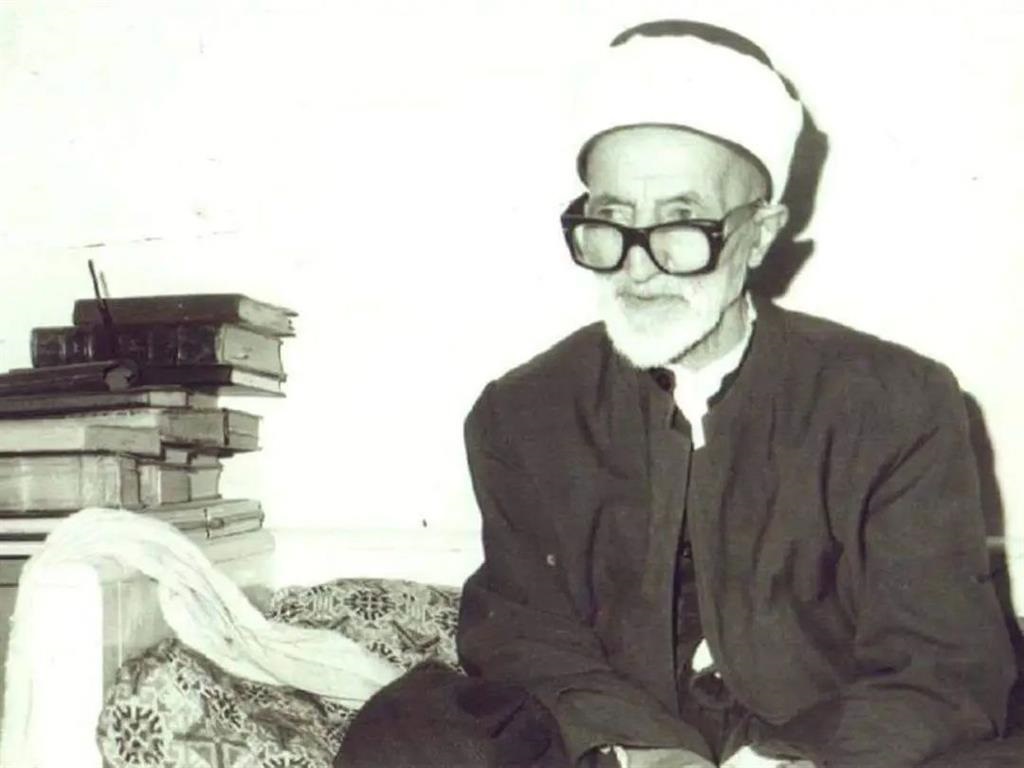Introduction
Following the death of Mullah Abdulkarim Muderis, scholars and researchers have explored the life, personality, and various works of this distinguished teacher. Although his contributions are not always highlighted or fully appreciated, they deserve more attention.
Place of Birth of Mullah Abdulkarim Muderis
The exact birthplace of Mullah Abdulkarim Muderis remains uncertain. However, the most widely accepted view is that he was born in the village of Goeza Kuera in Marivan, Iranian Kurdistan. In his book Rojgari Zyan (Days of Life), page 31, Muderis mentions being sent to school at the age of five due to his father’s desire for him to study. He recalls Mullah Abdulwahid, the village mullah, and notes that Abdulwahid received a license (Ejazah) from Biyara in 1331 AH and subsequently became the teacher and imam of Goeza Kuera. This provides clear evidence that Muderis was born in this village.
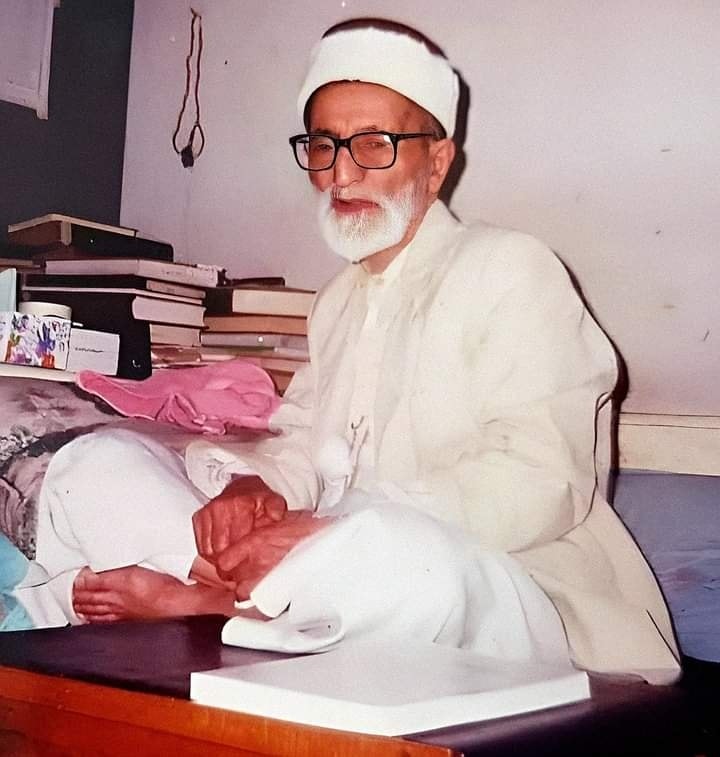
A closer examination of Rojgari Zyan and the regions where Muderis lived and studied, especially during his early childhood and middle age in Marivan, including villages such as Bayala, Asrawa, Lanjava, Balk, and Kani Sanan, reveals detailed insights into the region’s beauty and characteristics. Muderis extensively discussed Marivan under various aspects, including its water, air, natural conditions, economy, and administration, providing valuable information that reflects his deep connection to the region.
It should be noted that Muderis might not have openly stated his birthplace due to the oppressive regime of Saddam Hussein, which targeted scholars and intellectuals. Revealing his true origins could have led to severe consequences for him and his family, as many scholars were persecuted or killed for such disclosures.
Muderis, born in 1898, studied in both Iranian and Iraqi Kurdistan. He received his mullah’s license from the renowned Kurdish scholar Sheikh Omar Ibn al-Qaradaghi in Sulaimani. Throughout his life, he published more than 75 religious, historical, and literary works, including a commentary on the Qur’an in Kurdish and Arabic. He passed away in 2005, having also analyzed several masterpieces of classical Kurdish poetry.
Muderis and the First Friday Sermon in Kurdish
One of Mullah Abdulkarim Muderis’s notable achievements was delivering the Friday sermon in Kurdish for the first time. Prior to this, sermons were given in Arabic, which many listeners did not understand. For twelve years as a jurist and about ten years as a mullah in Kurdistan mosques, religious teachers would deliver sermons in Arabic from a book called Ibn al-Nabat’s sermons, which did not cater to the Kurdish-speaking audience.
Shaykh Muderis recounted that during the autumn season, Shaykh ‘Ala’uddin (may Allah have mercy on him) visited Shaways and Baways for a month. He later wrote a letter instructing that Friday sermons be delivered in Kurdish to ensure that Muslims could understand their meaning. This practice was established in Halabja and other areas.
It is noteworthy that Sheikh Aladdin, after endorsing this historic decision with his seal and signature, emphasized its importance. Although the honor of this decision is attributed to Sheikh Aladdin, the credit for delivering Friday sermons in Kurdish goes to Sheikh Muderis, particularly in sacred places such as mosques, madrasas, and monasteries.
Personality and Skills of Mullah Abdulkarim Muderis
Genealogy: Sheikh Muderis demonstrated exceptional skill in genealogy. In Rojgari Zyan, he meticulously documented the genealogy of numerous Kurdish families, especially scholars. He meticulously traced his own family lineage, including notable names such as Ahmad, Mahmoud, Hassan, Hussein, Ali, Arif, Fathullah, Qadir, and Marf, showcasing his extraordinary genealogical knowledge.
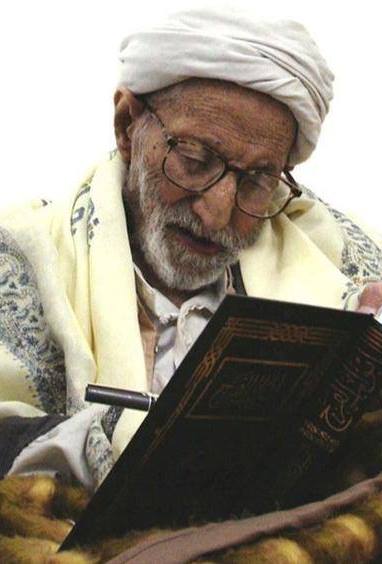
Religious Figures and Cultural Insights:
Mullahs and religious figures in our country have often faced criticism for their indulgence in alcohol and for certain aspects of their personal lives, such as the poems attributed to Sheikh Reza Talabani or various stories. However, it is not Islam itself but rather those with a dry and cowardly disposition who have suppressed such discussions. Mullah Abdulkarim Muderis, who recounted his trip to Baghdad in 1929, said: “We often went to Baghdad to serve Sheikh Baba Rasul and Mullah Mohammed Qazalji. For entertainment, Mullah Mohammad Qazalji would make us take boats and cross the Tigris River. Indeed, this journey was safer than many districts.”
One day, while we were sitting in a shop buying clothes, a woman came and called out to Sheikh Baba Rasul. He responded in Kurdish: “My sister, my daughter, you are still a little far from me.” My friend Mullah Kamal Amin Gulpi told me: “After 2000, when I was a student at the Sharia College in Baghdad, we used to visit Sheikh Muderis to benefit from his wisdom and often read his poems to him. He enjoyed it immensely. On one occasion, he said: ‘This time, when you return to Hawramabad, bring me a cassette of Osman Hawrami’s songs, including those from Siachemana, Sheikhana, and others.’”
During his time in Baghdad, Sheikh Muderis welcomed all Kurdish people, regardless of their intellectual background, without discrimination. The media from various Kurdish movements, whether national, secular, or Islamic, extensively covered the personality and contributions of this distinguished scholar to acknowledge and secure his place among different communities.
Muderis and the Science of Hadith
Another significant contribution of Mullah Abdulkarim Muderis is the revival of the science of hadith in Kurdistan. This field, which had been neglected and ignored for centuries despite its importance, was revitalized through his efforts. Muderis wrote the book The Way of the Leader in Kurdish for the first time, bringing a renewed focus on this sacred science to Kurdistan’s classrooms and schools. It is noteworthy that the first scholar to develop this science in Arabic was also of Kurdish origin. In the introduction to his book, Sheikh Muderis states: “Most of this treatise is derived from the book Sciences of Hadith, published by Shaykh al-Muhaddith Abu ‘Amr ‘Uthman, also known as Ibn Salah, who authored numerous works in the science of hadith. This is my own testimony.”
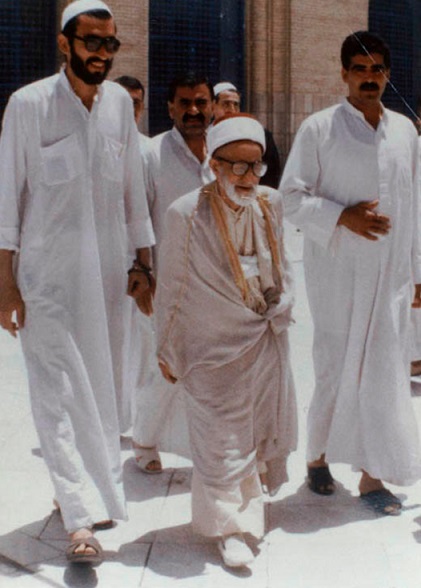
Mullah Abdulkarim Muderis and the Promotion of Kurdish Writing Over Arabic
Mullah Abdulkarim Muderis, despite his profound expertise in Arabic and Islamic sciences, is noted for his significant contributions to Kurdish literature. Although Muderis was well-versed in Arabic, as evidenced by his seven-volume work Mawahib al-Rahman Fi Tafsir al-Quran and his commentary on Rumi’s Al-Fadila in the book Al-Wasila, he wrote over 45 books in Kurdish compared to about 30 in Arabic.
Had he chosen to write more extensively in Arabic, his works might have reached a broader audience beyond Kurdish borders. Nonetheless, Muderis remained deeply committed to his Kurdish heritage. He played a crucial role in preserving and promoting Kurdish literature, including the works of numerous prominent Kurdish poets. His efforts extended to safeguarding manuscripts of Kurdish scholars and documenting the biographies of hundreds of Kurdish mullahs and scholars, culminating in the publication of two volumes detailing their contributions.
Mullah Abdulkarim Muderis’s Method and Program for Islamic Classrooms, Institutes, and Universities in Kurdistan
Since his appointment as a teacher in Biara in the late 1920s, Mullah Abdulkarim Muderis has been deeply committed to establishing an educational program for Kurdish jurists. He worked tirelessly to encourage students and scholars to study local texts within the classrooms of his time.
- Preserving Kurdish Scholarship: Muderis made significant efforts to keep alive the names and works of Kurdish scholars. He incorporated many Kurdish texts into his curriculum, teaching his students these works and integrating them into his educational program.
- Adapting Curriculum to Local Needs: Muderis recognized the importance of books and programs tailored to the Kurdish context. He believed that incorporating local texts into the curriculum would better align with Kurdish intellectual traditions and protect students from ideas that might not suit the Kurdish context.
Muderis’s method and program for Kurdistan’s schools covered all twelve traditional Islamic sciences, which he detailed in the final pages of his book, Al-Wardah al-Anbariya fi Sira Hazra Khair al-Bariya.
- First Science: Tafsir (Exegesis): Muderis included the study of Nasafi’s Commentary (Madarik al-Tanzil wa Haqa’iq al-Tawil) and Tafsir al-Bayzawi (Anwar al-Tanzil wa Asrar al-Tawil). He also authored Tafsir Nami in seven volumes and a Kurdish summary of it. Additionally, he wrote Nuri Qur’an, a text on the sciences of the Holy Qur’an, which is related to Tafsir.
- Second Science: Hadith: In this field, Muderis emphasized the study and research of hadith literature broadly, without focusing on any specific books. His works on hadith included two volumes titled Sources of Religion. For higher education, he considered all major hadith sources, from Sahih Bukhari and Sahih Muslim to Riyadh al-Saliheen and others.
- Third Science: Sarf (Morphology): Muderis’s program covered the study of Tasrifi Zanjani, which he explained and published in Kurdish, and Clear Sarf, a book of his own. He also assigned Tasrif by Mullah Ali Shinoyi for reading.
- Fourth Science: Grammar: His program included the study of Awamili Jurjani, Al-Muqaddamah al-Ajrumiyah, Muftah al-Adab (a work of his own), Qatr al-Nadi, Commentary of Mullah Jami, Shuzur al-Dhahab, and Al-Mawahib al-Hamidah. He also provided a commentary on Al-Manzuma al-Faridah (Alfiyah al-Imam al-Siw) in two volumes.
- Fifth Science: Rhetoric (Balagha): Muderis’s program included the study of Mukhtasar al-Ma’ani and Sharh al-Mutawwal by Sa’addin Taftazani. He also authored Al-Khulasah fi al-Wad’ wa al-Bayan and Al-Tibyan fi al-Wad’ wa al-Bayan.
- Sixth Science: Logic: His curriculum featured the study of Al-Miftah, Al-Waraqat, Al-Azizah, and Al-Wujihah, all authored by Shaykh Mudarris, as well as works by Taftazani, Hashiya Abdullah Yazdi, Sharh Shamsiya, and Galanbawi Burhan.
- Seventh Science: Hadith: In this area, Mullah Abdulkarim Muderis emphasized the study of works by Al-Hafiz al-Iraqi and Ibn Salah al-Sharazuri’s Muqadimah. His efforts represented a revival of the science of hadith in Kurdistan, a field that had been neglected for centuries despite its importance. Muderis’s work included writing the first Kurdish book on hadith, marking a significant contribution to this field. It is noteworthy that the science of hadith was initially developed by a Kurdish scholar, Peshawar (Ibn Salah of Sharazouri), who systematically compiled and organized the scattered elements of this science into a cohesive framework, achieving a historic milestone in the field.
- Eighth Science: Islamic Belief: In this section, he referenced books such as Sharh al-Aqa’id by Taftazani, along with commentaries by Khayali and Abdul Hakim, and works like Sharh al-Mawaqif and Taqreeb al-Maram fi Sharh Tahrir al-Kalam by Mullah Abdul Qadir Takhti Sana’i – Muhajir. He also included Al-Wasilah, which is Sheikh Muderis’s own interpretation of Rumi’s poem Al-Fadhilah, as well as books like Noor al-Islam, Noor al-Iman, Guidance of Names, and Jawahir al-Kalam fi Aqa’id Ahl al-Islam. The latter is an excellent book on Islamic beliefs, composed and interpreted by Muderis himself, published in 1956.
- Eighth Science: Islamic Belief: In this area, Mullah Abdulkarim Muderis referred to several important works, including Taftazani’s Sharh al-Aqaid with annotations by Khayali and Abdul Hakim, Sharh al-Mawaqif, and Taqrib al-Maram fi Sharh Tahdhib al-Kalam by Mullah Abdul Qadir Takhti Sana’i – Muhajir. He also highlighted his own interpretation of Rumi’s Al-Fazilah in his book Al-Wasilah. Additional recommended readings include Noor al-Islam, Noor al-Iman, Guidance of Names, and Jawahir al-Kalam fi Aqa’id Ahl al-Islam. The latter, published in 1956, is a notable work of beliefs authored and interpreted by Muderis himself.
- Ninth Science: Islamic Shari’ah: In this field, Muderis guided the study and research of Imam Shafi’i’s jurisprudence through texts such as Mughni al-Muhtaj, Tuhfat al-Muhtaj, and Nihayat al-Muhtaj, among others. He assembled prominent Kurdish scholars and offered his own fatwas. Muderis also authored a book on Islamic law in Kurdish, praised by Hemni Shair about forty years ago. The book was lauded as a masterful and intense work, and even after forty years, it remains unparalleled in Kurdish literature on Imam Shafi’i’s jurisprudence.
- Tenth Science: Principles of Jurisprudence: Muderis’s curriculum included the study of Jama’ al-Jawam, Lub al-Asul, and Mukhtar al-Muntahi by Ibn Hajib al-Mustafi Ghazali. He also authored Safwat al-Lali, which delves into the principles of jurisprudence.
- Eleventh Science: The Life of the Prophet (pbuh) and Islamic History: In this area, Muderis emphasized the study of the Prophet Muhammad’s biography and Islamic history. He particularly recommended Ibn Khalqan’s history and his own work, Al-Ma’una fi Khidmat al-‘Ilm wa al-Din, which covers the history and biographies of scholars and notable mullahs from Kurdistan.
- Twelfth Science: Mathematics, Geography, and Modern Sciences: Muderis also encouraged the study of ancient texts such as Tashrih al-Aflak and its commentary, Idrak fi Sharh Tashrih al-Aflak by Mullah Hussein Pishderi. He advocated for the inclusion of modern sciences in the curriculum, emphasizing the need to study and stay abreast of advancements in mathematics, astronomy, geography, chemistry, physics, computer science, and even English.
Last Discussion:
Dr. Mustafa Zalmi and Hadith Scholar Abdul Fattah Abu Ghudda’s Views on Mullah Abdulkarim Muderis
Dr. Mustafa Zalmi frequently praises Sheikh Muderis’s expertise and knowledge in his memoirs. He recounts an instance when he was asked to write an article about Mullah Abdulkarim Muderis for a magazine. To gather information for the article, Zalmi visited Muderis and asked him about his scholarly approach:
“I asked, ‘Master, you are well-versed in Islamic sciences. Why do you not provide answers based on your own ijtihad, but rather adhere to the names of Shafi’i, Hanafi, or Maliki schools?’ I explained that Imam Shafi’i had specialized in just four sciences at that time: the Qur’an, Hadith, principles of jurisprudence, and rhetoric, as other sciences had not yet been translated into Arabic. You have taught these subjects for over seventy years, and countless students have studied under you and received your permission. Why don’t you engage in ijtihad yourself, as they did?’ He replied, ‘You are right! But do you know what some people would say if I did that?'”
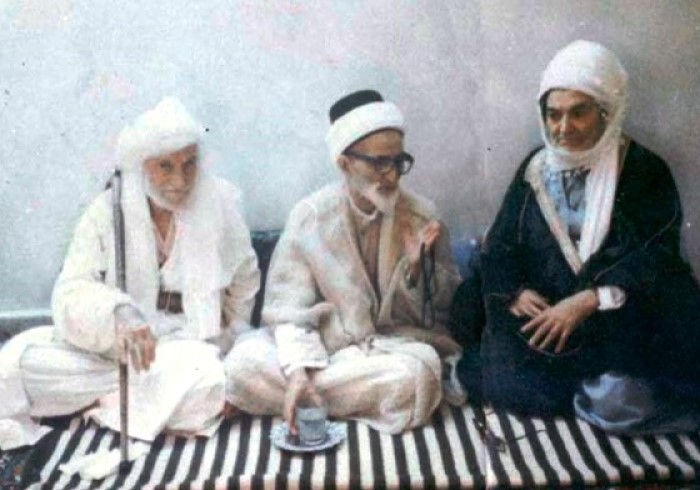
Many teachers have considered Zalmi’s praise of Muderis to be exaggerated. However, during the discussion of my doctoral thesis, Sheikh Abdul Fattah Abu Ghudda, a prominent hadith scholar, remarked that Mullah Abdulkarim Muderis was even more knowledgeable in his time.
Conclusion
- This brief research confirms that Mullah Abdulkarim Muderis was born in the village of Goezakuera in the Marivan region of East Kurdistan, and not in any other village, a detail which has been clarified according to historical needs.
- Mullah Abdulkarim Muderis demonstrated a profound commitment not only to his religion but also to the Kurdish language, literature, and his country. This dedication is evident in the Kurdish works he authored.
- Mullah Abdulkarim Muderis was the first Kurdish mullah to deliver Friday sermons in Kurdish at a major religious and academic center, such as the Biara monastery.
- Mullah Abdulkarim Muderis created specialized and independent texts on the twelve traditional sciences of the Kurdish region, ensuring that Kurdish scholars could study these subjects without reliance on foreign Kurdish interpretations.
- Mullah Abdulkarim Muderis maintained an open-minded religious perspective and fostered amicable relationships with all classes and ideologies within the Kurdish community.
- Just as the esteemed scholar Ibn Salah of Sharazoor is credited with founding the science of hadith in Arabic, Mullah Abdulkarim Muderis is recognized as the pioneer of hadith studies in Kurdish.
- The high praise from contemporary scholar Dr. Mustafa Zalmi regarding Mullah Abdulkarim Muderis’s scholarly achievements underscores the extraordinary nature of his knowledge, which was a primary factor in his esteemed position.
- This biography was produced by Dr. Abdulla Mala Ahmed Ahmedawaiay and translated by Harman Ahmed for Kfuture.Media.
- Source: Religious Studies Magazine, Center for Future Studies (CFS).

